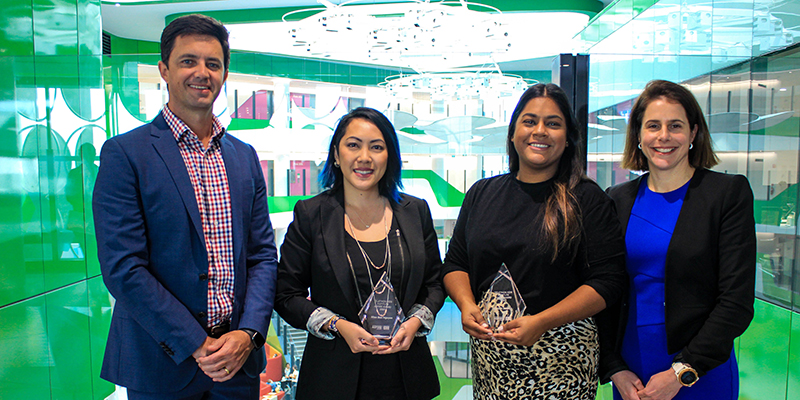Search
Research
Characterizing Transdiagnostic Processes Underlying the Drive to Socially Engage: A Multimeasurement Factor Analytic InvestigationAltered drive to socially engage is a transdiagnostic feature across multiple psychopathologies. Yet, lack of clarity regarding specific processes that constitute social drive, along with insufficient measurement methods, has hindered understanding in this area. This study ascertained the feasibility of approximating difficulties within specific fine-grained social drive processes as proposed by 2 theoretical frameworks: “orienting,” “wanting,” “pursuing,” “liking,” “learning,” and “reticence” within a reward processing framework and “orienting,” “seeking and maintaining,” and “liking” within a social motivation framework.
Research
Caregiver perspectives regarding the impact of feeding difficulties on mealtime participation for primary school-aged autistic children and their familiesAlthough up to 89% of autistic children experience feeding difficulties, little is known about the impact of these difficulties on mealtime participation. The aim of this study was to explore the impact of feeding difficulties on the mealtime participation of autistic children and their families based on caregiver experiences.
Research
Intellectual disability and autism prevalence in Western Australia: impact of the NDISEstimates of the prevalence of intellectual disability or autism spectrum disorder may vary depending on the methodology, geographical location, and sources of ascertainment. The National Disability Insurance Scheme in Australia was introduced progressively from 2016 to provide individualized funding for eligible people with a significant and permanent disability.

News & Events
Chance to showcase WA expertise on the international stage thanks to Aspire AwardsTwo of The Kids Research Institute Australia’s best and brightest will share in $10,000 of funding to use for investment in their professional growth through attendance at an international conference, when safe to do so.

News & Events
The Kids researchers awarded Raine Medical Research Foundation fundingCongratulations to Dr Gail Alvares and Dr Rachel Foong, who have been awarded funding from the Raine Medical Research Foundation.
Research
Are Prenatal Ultrasound Scans Associated with the Autism Phenotype? Follow-up of a Randomised Controlled TrialAn existing randomised controlled trial was used to investigate whether multiple ultrasound scans may be associated with the autism phenotype.
Research
Do Children with Specific Language Impairment have a Cognitive Profile Reminiscent of Autism? A Review of the LiteratureThis paper reviews relevant literature on whether individuals with SLI exhibit cognitive characteristics reminiscent of autism.
Research
A comparison of autism prevalence trends in Denmark and Western AustraliaPrevalence statistics for autism spectrum disorders (ASD) vary widely across geographical boundaries. Some variation can be explained by diagnostic methods...
Research
Narrowing the broader autism phenotype: A study using the Communication ChecklistThis study investigated whether the Communication Checklist - Adult (CC-A) could identify subtypes of social and communication dysfunction in autism probands an
Research
Friendship, loneliness and depression in adolescents with Asperger's SyndromeThis study investigated the relation between friendship, loneliness and depressive symptoms in adolescents with Asperger's Syndrome (AS).
